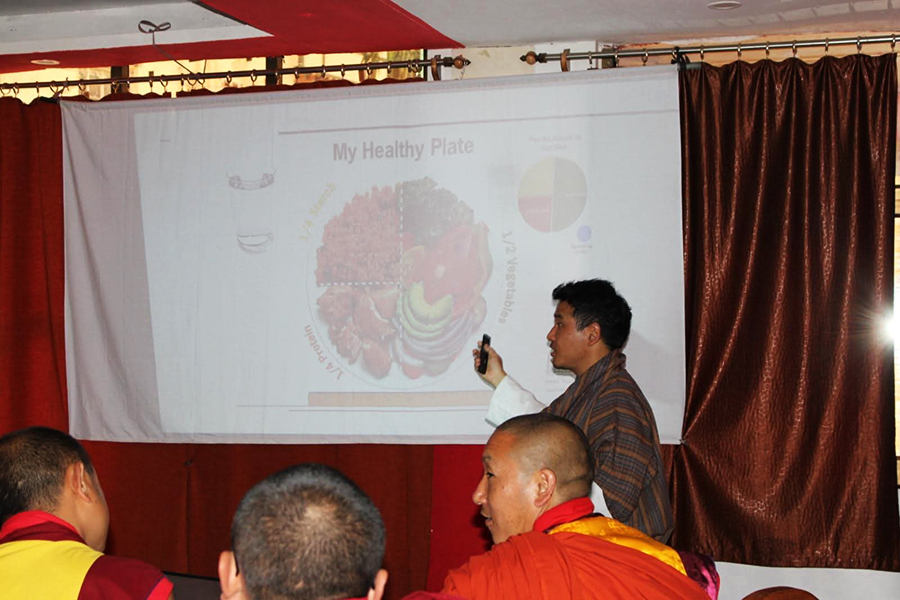 As the country faces the rising threat of Non-Communicable Diseases or NCDs, the health ministry is now equipping religious leaders with the knowledge and skills to reduce preventable health risks. During the last two days, health coordinators from the Central Monastic Body and the Chhoedey Lhentshog across six eastern districts took part in an NCD prevention training in Samdrup Jongkhar.
As the country faces the rising threat of Non-Communicable Diseases or NCDs, the health ministry is now equipping religious leaders with the knowledge and skills to reduce preventable health risks. During the last two days, health coordinators from the Central Monastic Body and the Chhoedey Lhentshog across six eastern districts took part in an NCD prevention training in Samdrup Jongkhar.
 Unlike their usual role in religious teachings, the monks and nuns in the training focused not on spirituality but on learning about Non-Communicable Diseases such as diabetes, cardiovascular diseases, and cancer.
Unlike their usual role in religious teachings, the monks and nuns in the training focused not on spirituality but on learning about Non-Communicable Diseases such as diabetes, cardiovascular diseases, and cancer.
The health experts spoke about the dangers of unhealthy diets, lack of exercise, smoking, and drinking too much alcohol.
They explained how small changes such as eating more fruits and vegetables, being physically active, and avoiding tobacco and alcohol could help prevent these diseases.
“We will introduce a monthly session on non-communicable diseases in our dratshang. NCDs are increasing in our country, so the religious institutes will interact with the community to bring down the cases,” said Lhagyal Wangdi, a teacher at Samdrupcholing Dratshang, Samdrup Jongkhar.
“To prevent the diseases, we, with the support from health officials, provide awareness to the general public on NCD, it will be beneficial if we can also create awareness to the community,” Kinley Penjor, the chief programme officer for Religion and Health Programme, Central Monastic Body.
Samdrup Jongkhar Lam Neten Doden Dorji said, “The purpose of religious figures is to serve and uplift others. While we may not always be able to offer financial assistance, we can educate and raise awareness. Let us focus on increasing awareness of NCDs to help reduce their prevalence.”
The World Health Organization and the health ministry funded similar programmes for monks and nuns in other parts of the country.
As the monks and nuns return to their institutions, they carry with them the knowledge to combat silent diseases affecting their communities. By integrating health education into their teachings, they not only aim to safeguard their spiritual well being but also empower people to lead healthier lives.
Kinley Wangchuk, Samdrup Jongkhar
Edited by Sangay Chezom










